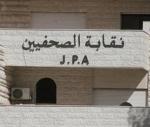You are here
Media freedom for a better future
Jun 25,2014 - Last updated at Jun 25,2014
Each year, World Press Freedom Day is celebrated globally, supported by UNESCO, as the sole UN agency with a mandate for the promotion of the free flow of ideas by word and image.
This annual occasion serves to reinforce and promote the fundamental principles of global media freedom.
In Jordan, as part of the 2014 celebrations of World Press Freedom Day, under the global theme “Media Freedom for a Better Future: Shaping the post-2015 Development Agenda”, a consultation was held, facilitated by the UNESCO Amman Office, with representatives of civil society, media stakeholders and professionals, to gather insights and recommendations, and contribute to the global post-2015 dialogues.
At global level, for the third year in a row, a “Youth Newsroom” was set up at UNESCO’s headquarters in Paris to cover the World Press Freedom Day Conference.
With the generous support of the European Union, under the global Networks of Mediterranean Youth Project (NET-MED Youth), 33 young aspiring journalists from 14 countries (10 of whom originated from NET MED Youth target countries, including Jordan) participated in the fast-paced event.
UNESCO Amman facilitated the participation of a Jordanian and a Syrian talented youth.
Representing Jordan was Abdullah, who studied as a translator and currently works as a teacher of English in a school in Jordan.
Abdullah recalled the “team spirit” amongst the 33 youth representatives in Paris and was thrilled to witness the differences in Western media culture.
He explained enthusiastically: “This boosted my confidence and made me want to be a leader.”
Yara, a young woman who fled the violence in Daraa, Syria, with her family in 2013, lit up as she spoke about her time in Paris.
Currently studying at Yarmouk University, she said: “This experience has made me more passionate about continuing my education in media and communications. One day, I would like to be a news anchor.”
The post-2015 development agenda is the strategic development framework that will guide the efforts of the international community after the Millennium Development Goals (MDGs) come to an end.
In 2000, eight MDGs were endorsed as a common framework of shared priorities of all member states. This time around, using a participatory approach, the UN is facilitating at global level an inclusive dialogue on post-2015 possible priority areas with its member states, as well as all stakeholders, to shape the future development framework.
Jordan has been pro-actively engaged in advocating for an inclusive and ambitious post-2015 development agenda.
As one of the original six Arab countries chosen to carry out the first round of national consultations in 2012-13, Jordan played a prominent role in influencing global choices.
Against this background, World Press Freedom Day 2014 examined the vital interaction between media and development.
Remarkably, this year, the United Nations Country Team in Jordan was assigned as one of seven countries in the Arab region to support the second phase of post-2015 consultations under the theme “Partnership with civil society and other actors”.
The process will enable the civil society to contribute key recommendations on how they themselves can support the implementation of the post-2015 development framework.
The critical role of the youth, within this post-2015 agenda, as key actors shaping resilient communities and a peaceful future should not be overlooked.
The media can serve to highlight and encourage youth engagement and empowerment in this process, and assist in attracting the deserved attention of the international community.
UNESCO continues to advocate for freedom of expression and media freedom to be included in the post-2015 development agenda as an integral part of good governance, which is a precondition for sustainable development.
The right of access to information, independent media and safety for exercising freedom of expression are essential for sustainable development.
The state of journalism itself is a development issue that we must continue to advocate for so that the voices of young leaders like Yara and Abdullah do not go unheard in our post-2015 world.
The writer is UNESCO country representative. She contributed this article to The Jordan Times.











